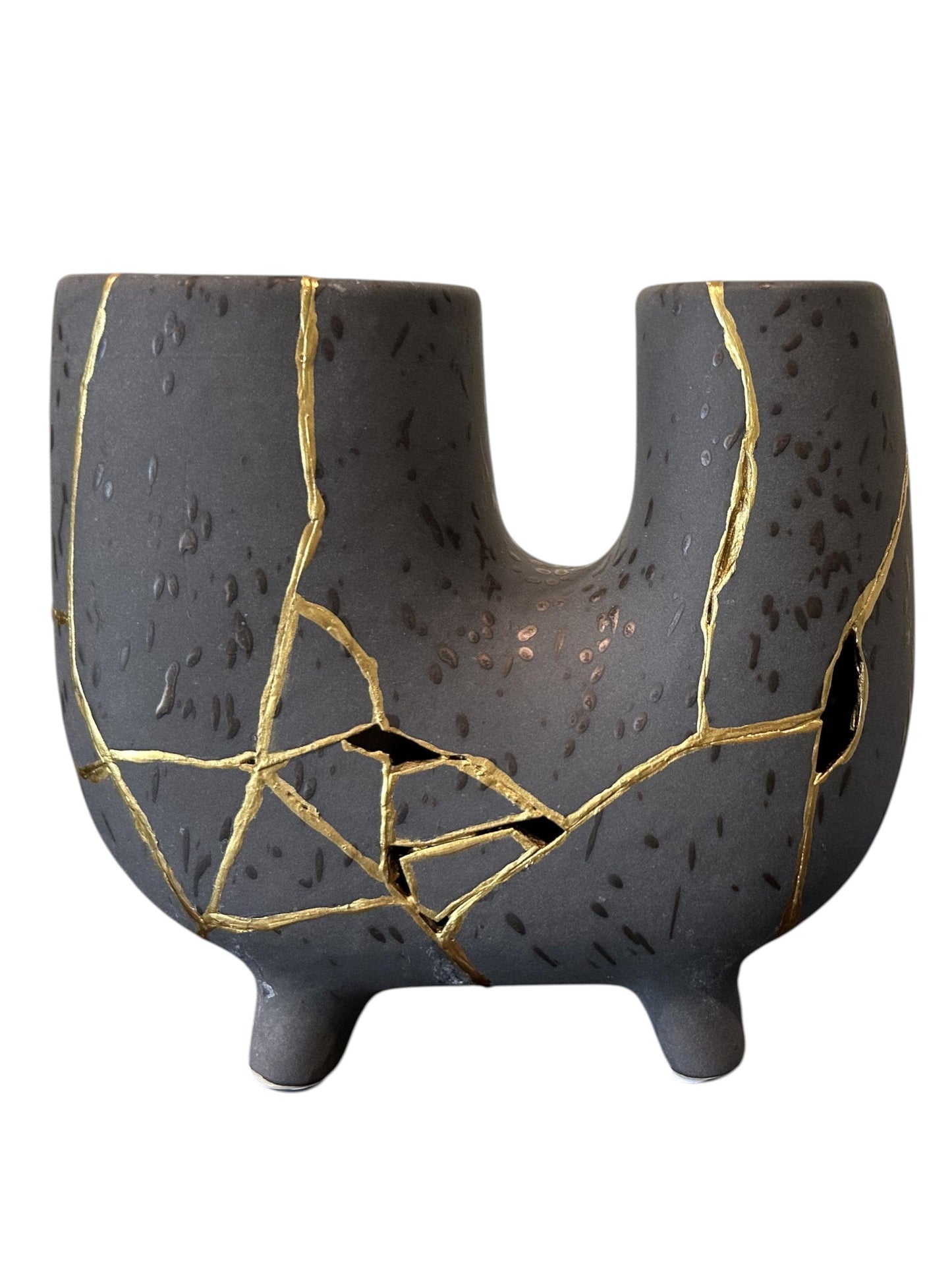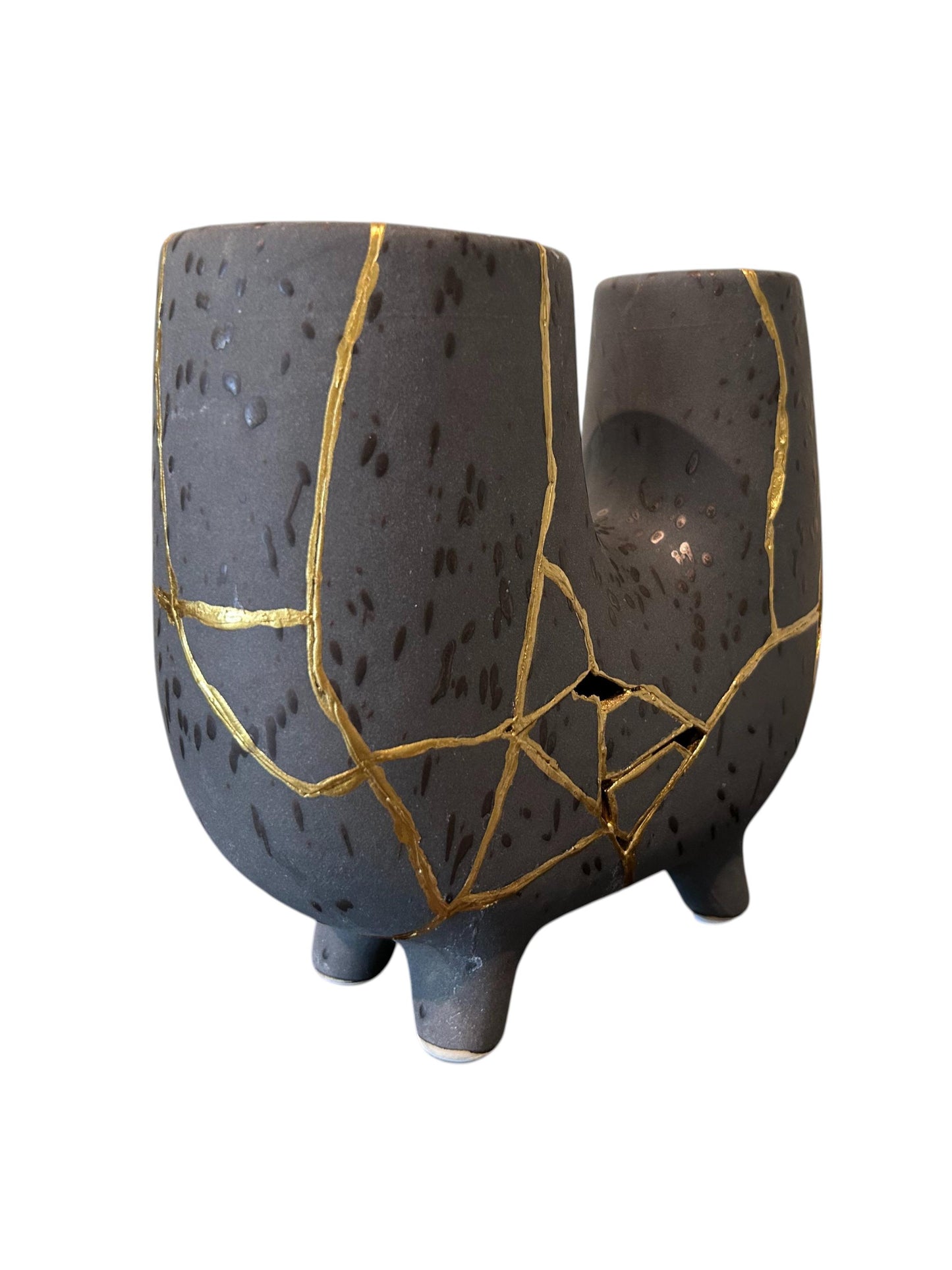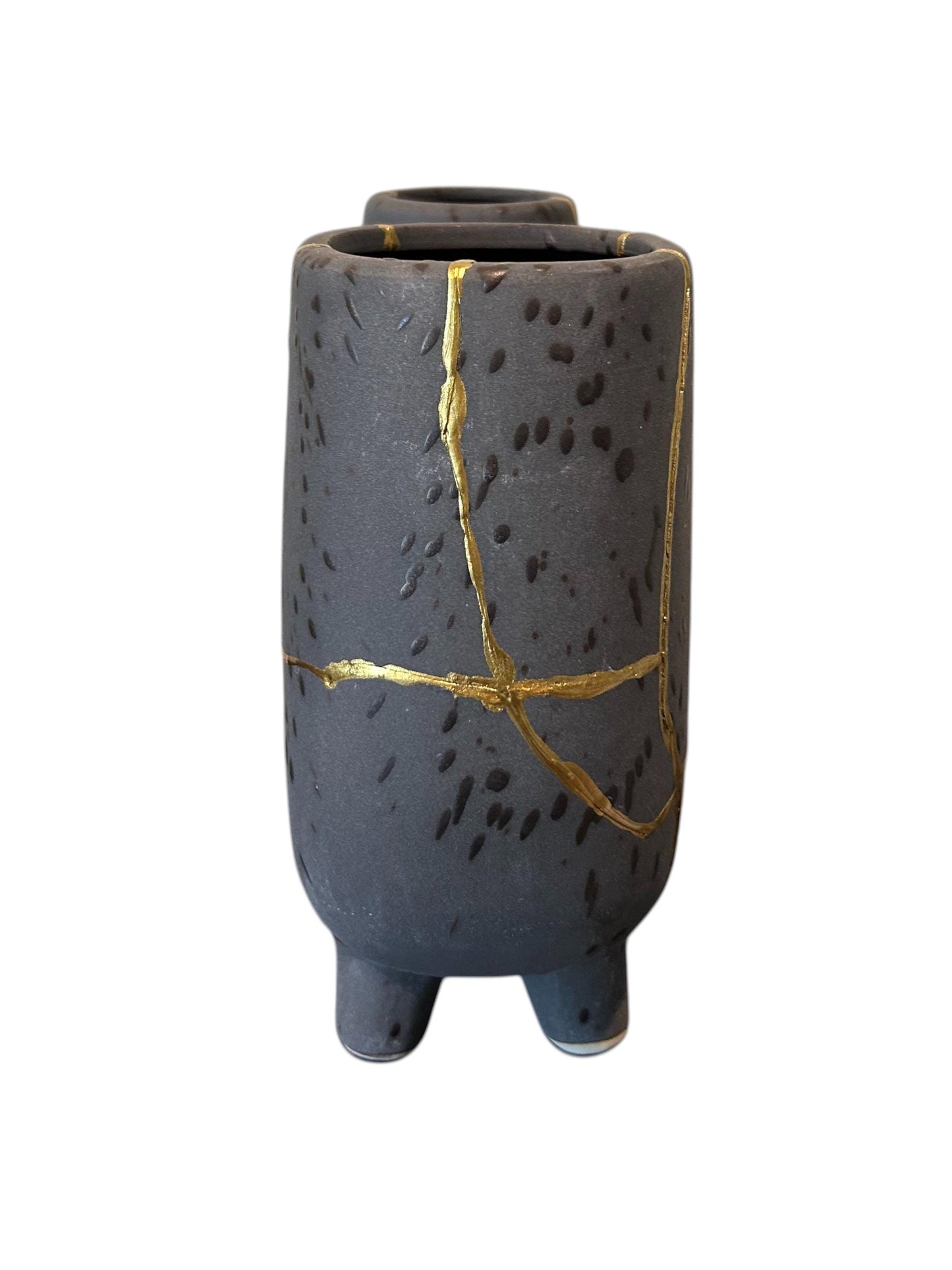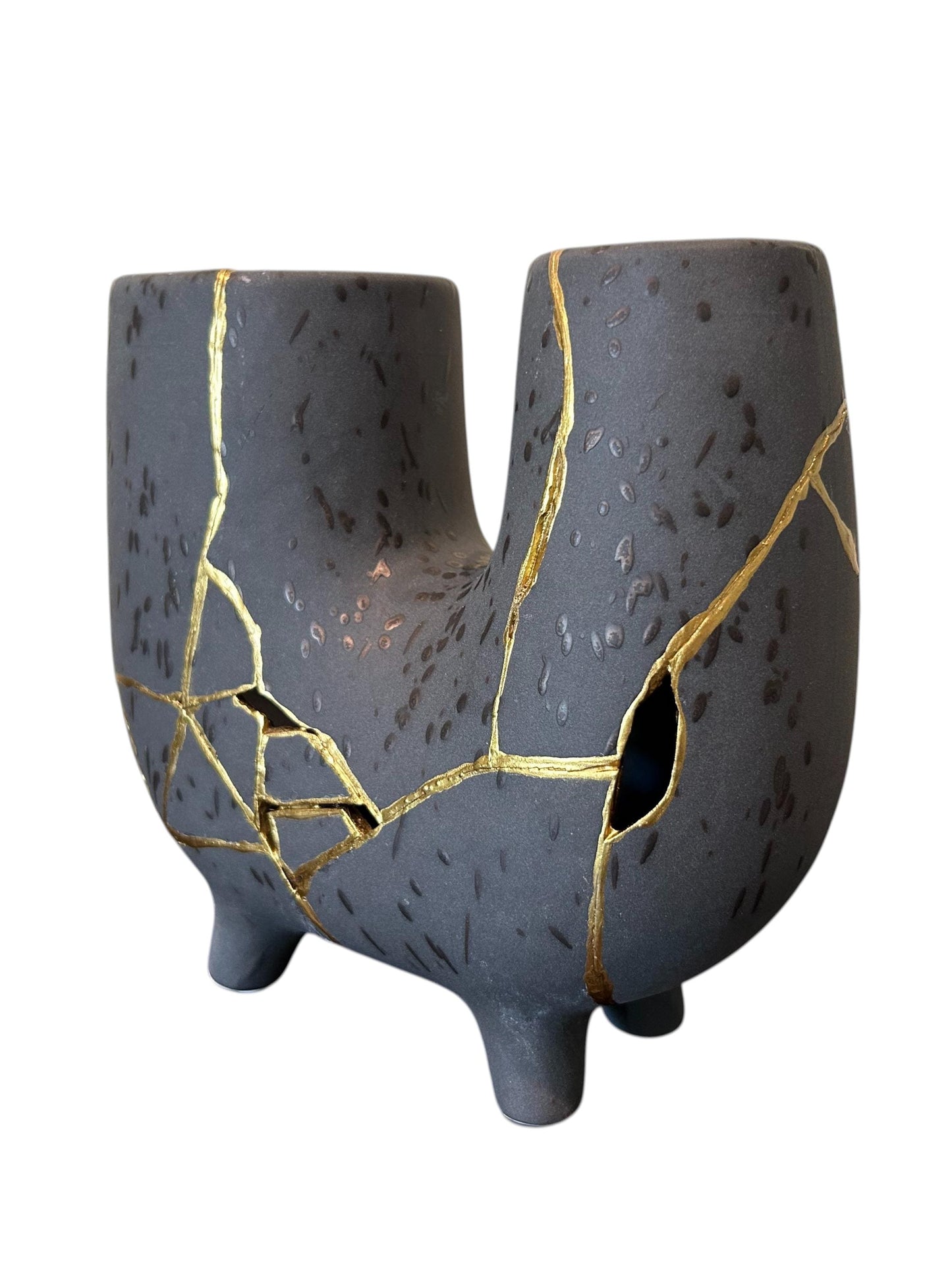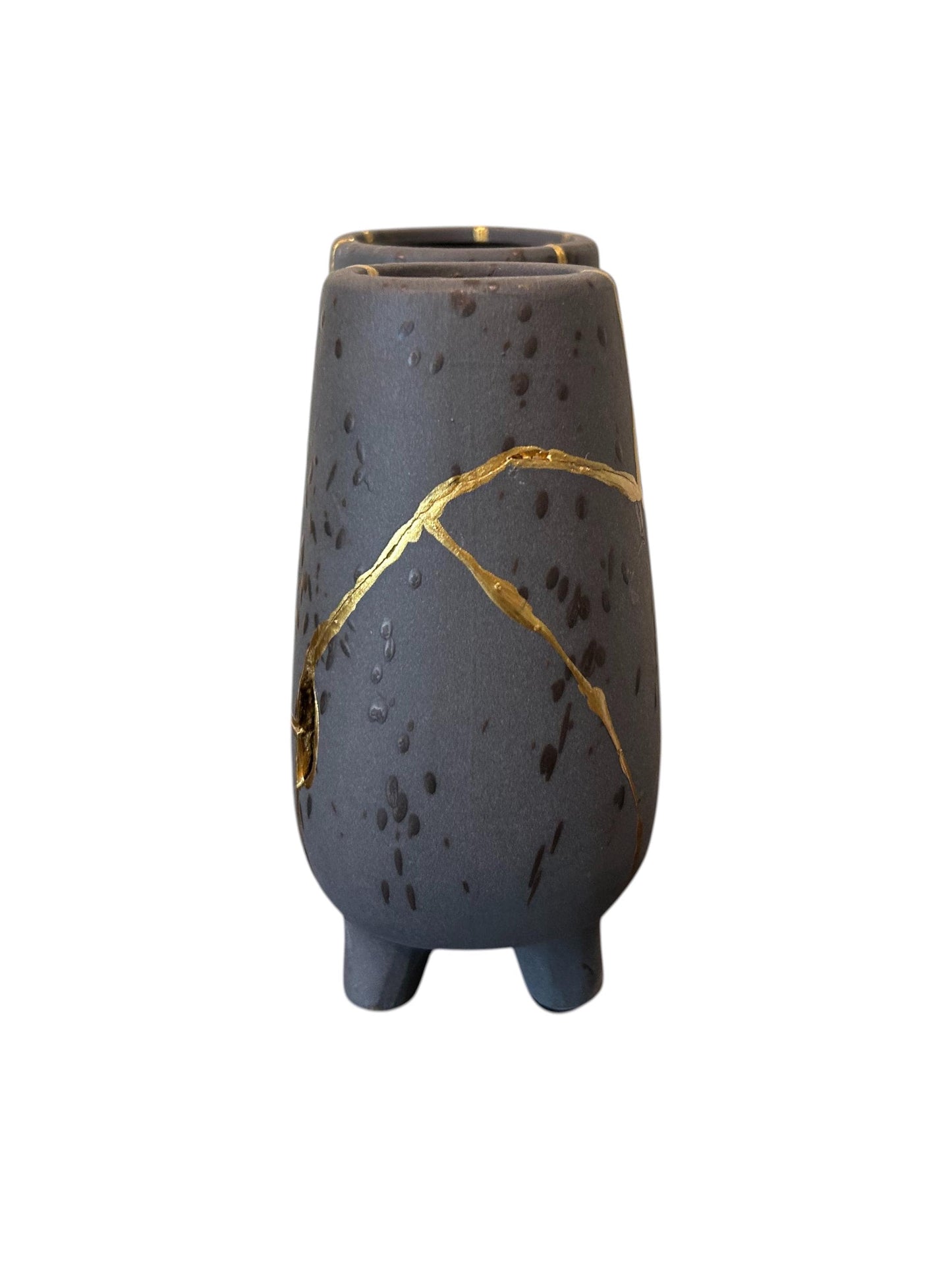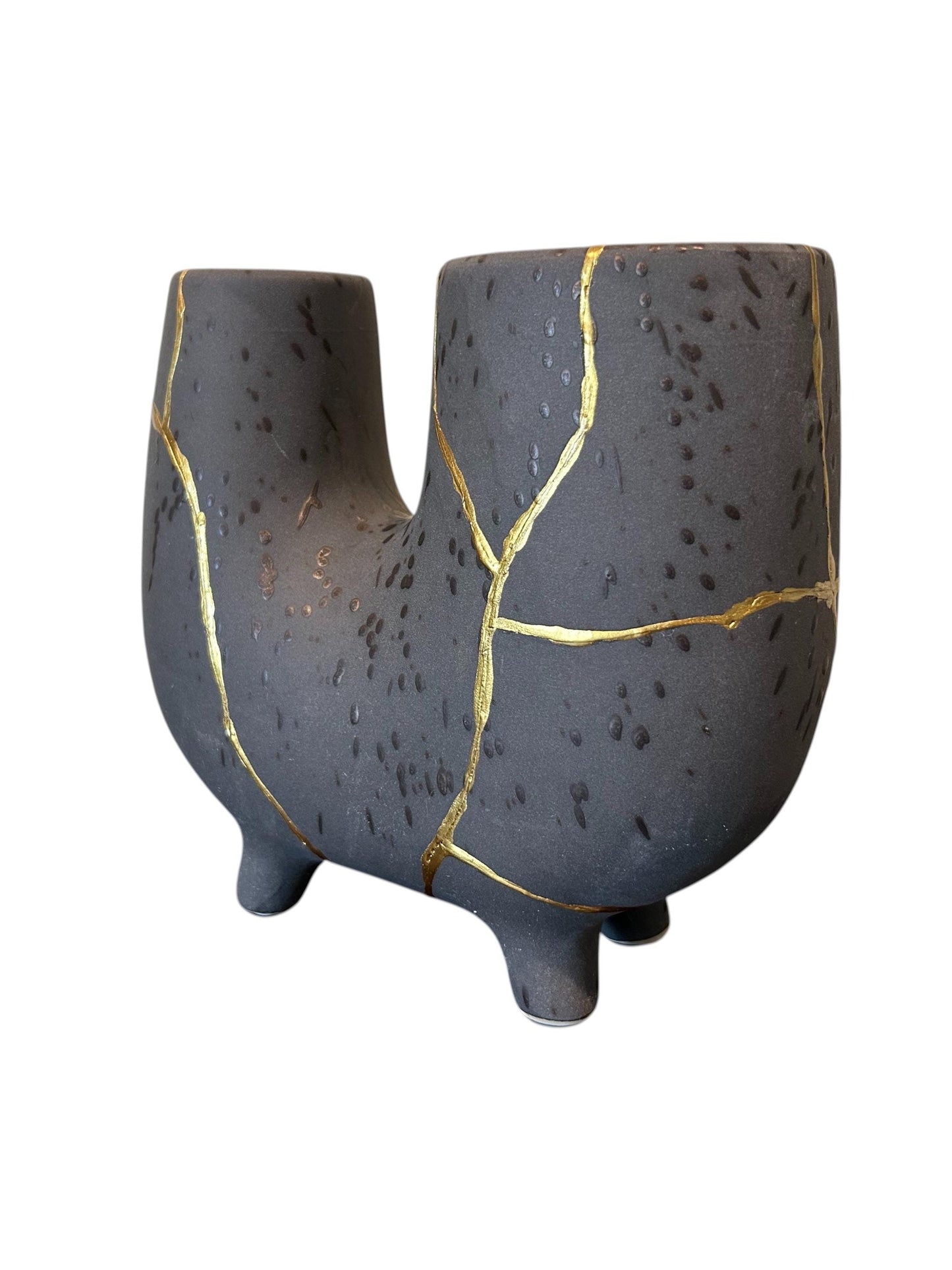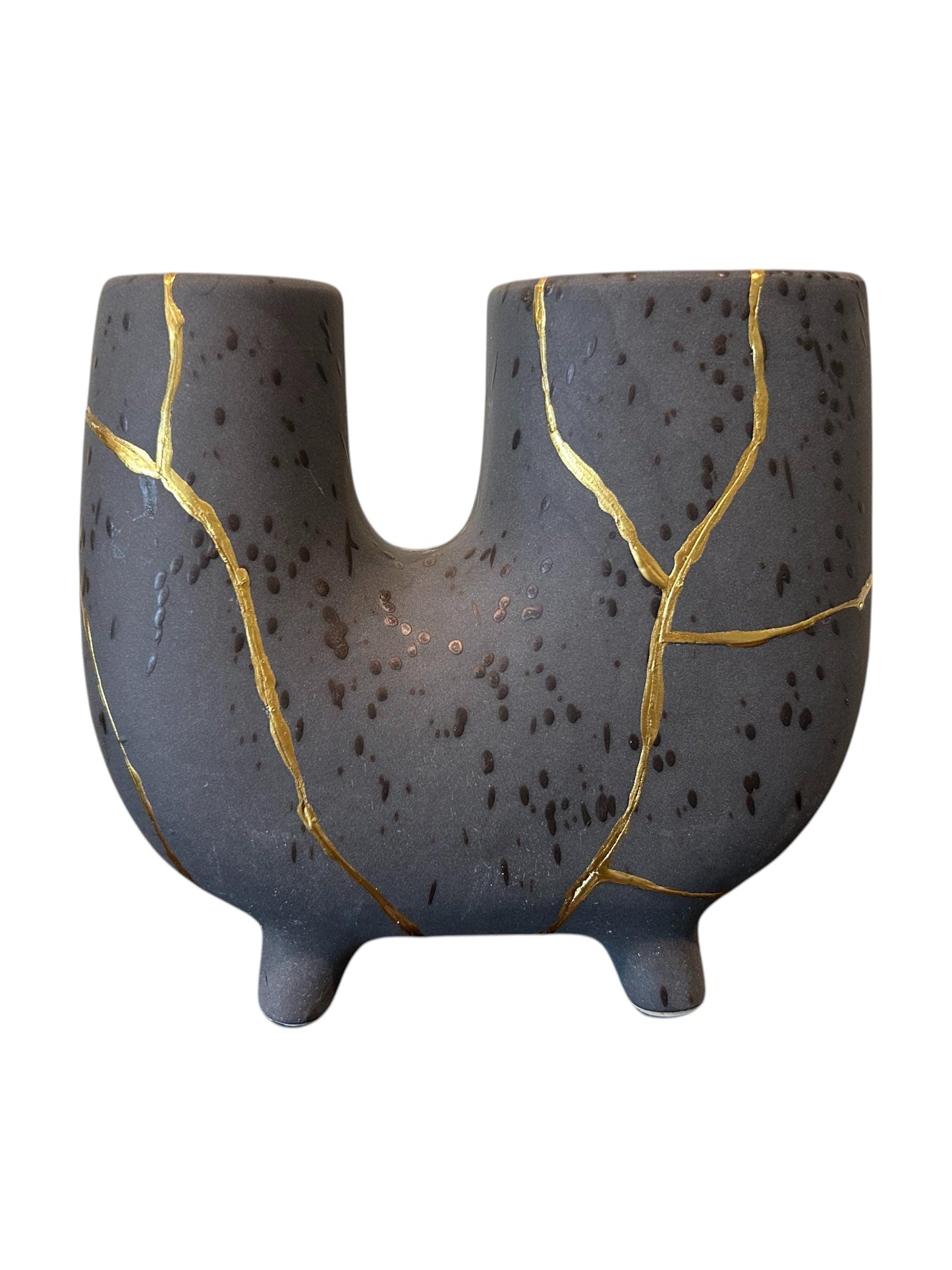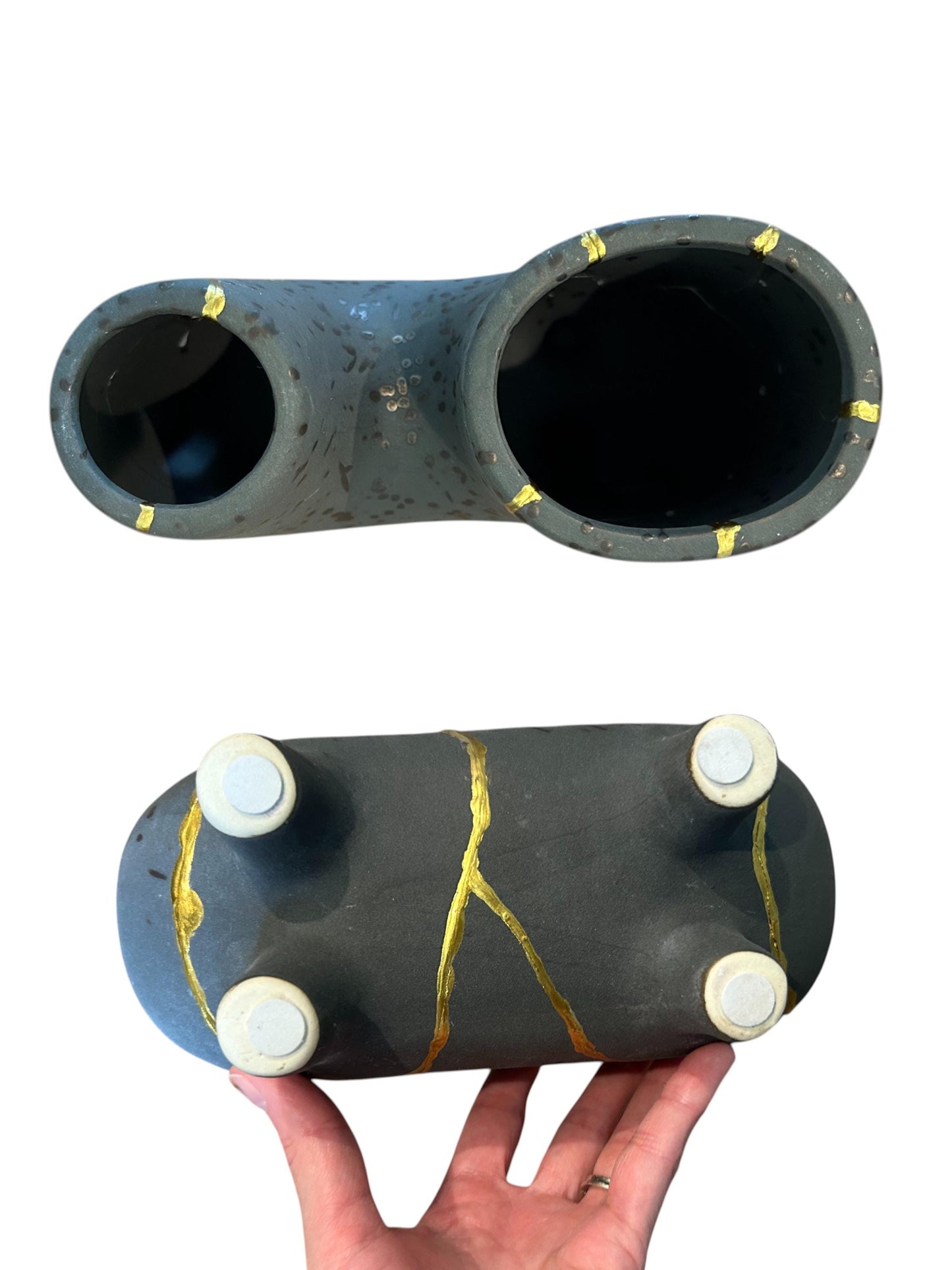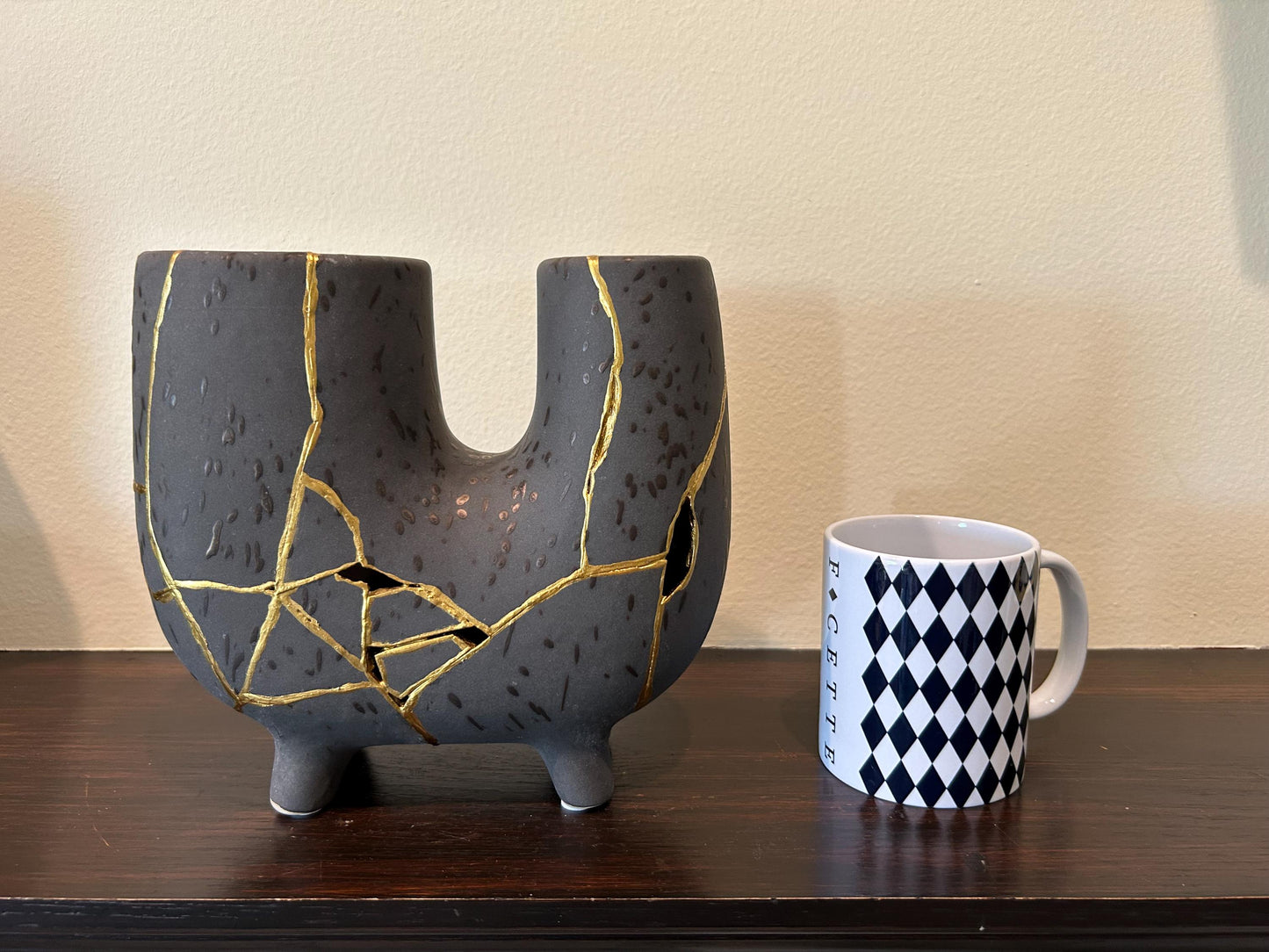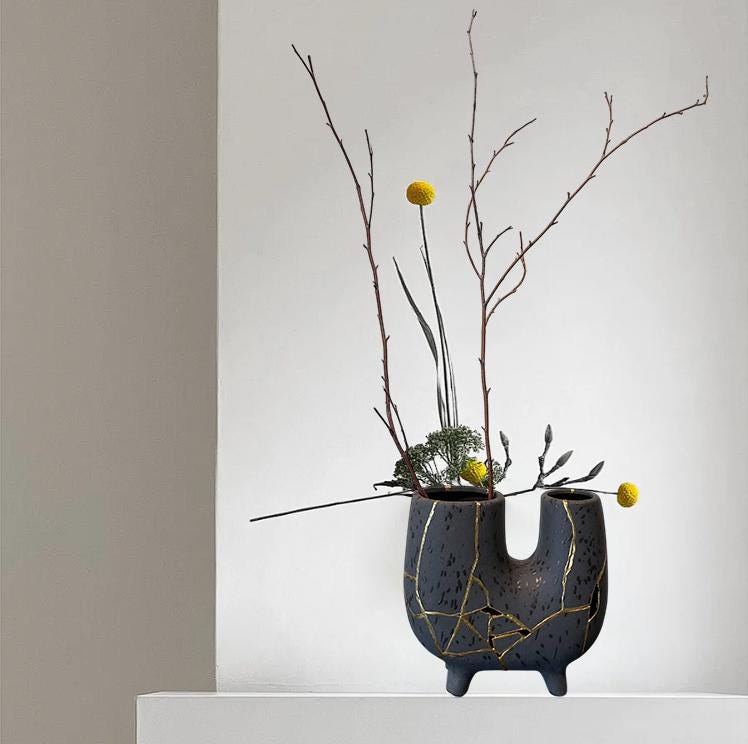Facette Gallery
Modern Kintsugi Haiiro Vase - Japandi - Broken + Repaired Japanese Pottery - Hand Painted Gold - Rough Texture - Charcoal (H) 8in (W) 8.75in
Modern Kintsugi Haiiro Vase - Japandi - Broken + Repaired Japanese Pottery - Hand Painted Gold - Rough Texture - Charcoal (H) 8in (W) 8.75in
Couldn't load pickup availability
Share
A Meaningful, Limited-Edition, Gallery-Grade Piece
*Please Note: For decorative purposes + dried/artificial flowers only.
***
Gallery Representation - Las Laguna Art Gallery, Laguna Beach, CA + Artsy
***
Japandi 101 Collection
Type - Small Vase
Material - Matte Speckled Ceramic
Size - (H) 8in (W) 8.75in
Colors - Charcoal (Dark Gray), Gold
Character - Japandi
Outside - Gold Kintsugi Paint Along Break Lines
Placement - Table
***
Be a part of a global movement toward mindful, sustainable, slow living.
FW25 Color Trend - Charcoal, Bronze/Brown
2025 Home Decor Trends - Sustainable Luxury, Japandi, Artisan Craftsmanship
Textured and Matte Finishes
Textured ceramic finishes, such as ribbed or carved surfaces, are trending for their ability to add depth and tactile interest to a space. Matte pieces, in particular, are gaining popularity for their understated elegance. These finishes work well with both modern minimalist interiors and rustic farmhouse styles.
What is Kintsugi?
Beauty in Imperfection/Broken is Beautiful
Kintsugi is the exquisite Japanese Artform of repairing breaks in pottery using gold paint. The gold repair is symbolic; calling attention to the flaws in the piece rather than hiding them. The message is a metaphor: the process of healing—whether physical, emotional, or conceptual—is itself an art; beautiful and worthy of celebration.
What is Japandi?
Japandi is an interior design and architecture style that blends the aesthetics of Japanese and Scandinavian design. It's a fusion of minimalist Japanese design principles and the cozy, functional simplicity of Scandinavian styles. The term 'Japandi' is a portmanteau of Japanese and Scandinavian.
Key characteristics of Japandi include:
+ Minimalism/ Both Japanese and Scandinavian design emphasize simplicity and uncluttered spaces.
+ Natural Materials/ Wood, linen, and other natural elements are frequently used.
+ Neutral Color Palette/ Earthy tones, muted colors, and a focus on natural light are common.
+ Clean Lines and Functionality/ Furniture and decor are chosen for their functionality and simple, elegant forms.
+ Wabi-Sabi/ The Japanese philosophy of finding beauty in imperfection is sometimes incorporated, adding a touch of rustic charm
Materials: Bonding Material, Ceramic Vase, Kintsugi Paint.
